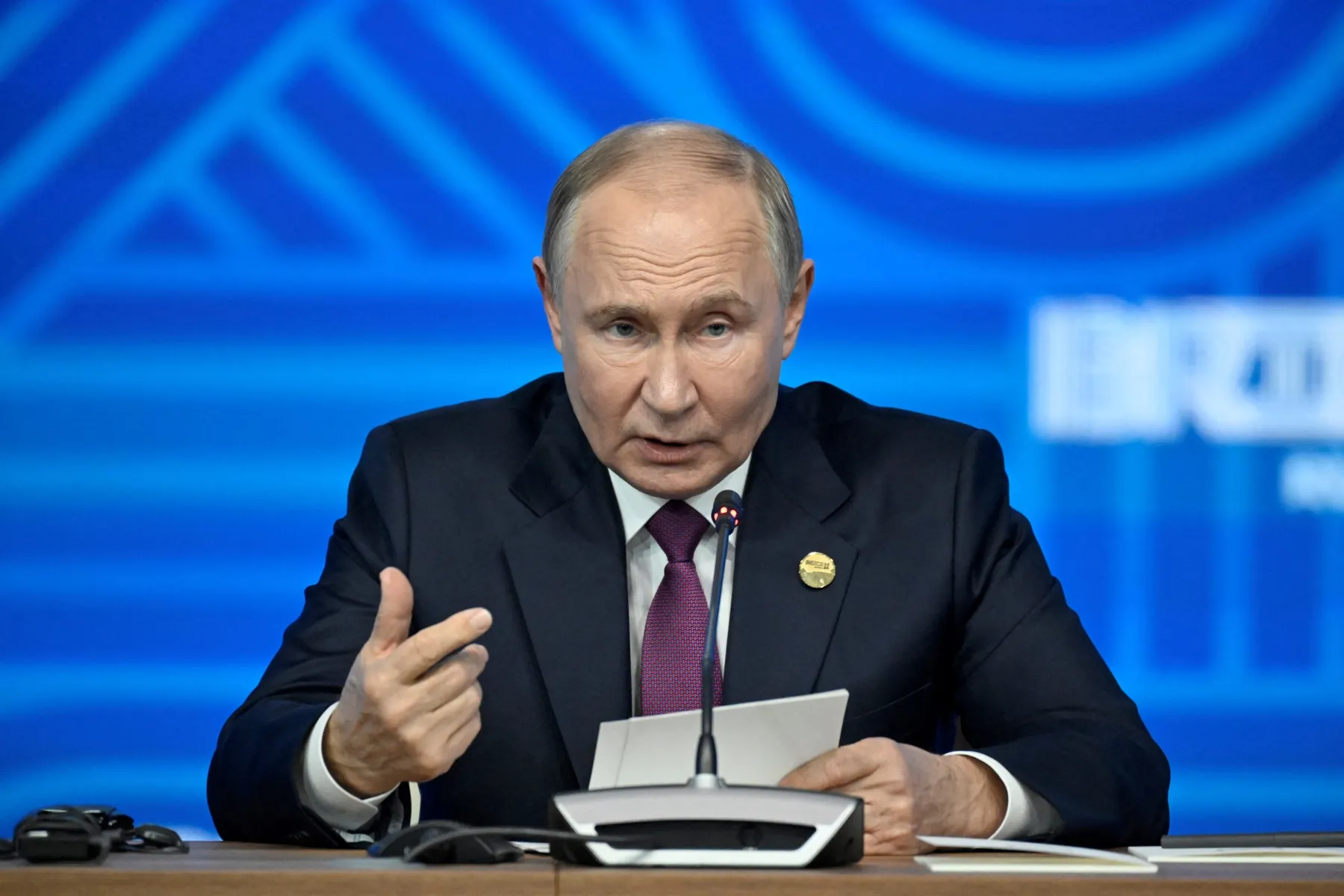President Vladimir Putin publicly disagreed with Sberbank chief Herman Gref’s alarmed assessment of a “technical recession” and voiced support for the Bank of Russia’s actions, which raised the key rate to record levels to tame inflation. According to Bloomberg, the debate over the price of money and the risks of cooling the economy is coming to the fore ahead of the next central bank meeting on September 12.
At the Eastern Economic Forum in Vladivostok on Friday, the president was asked directly whether he agreed with Gref’s conclusions about signs of stagnation. His answer was as brief as it gets: “No.”
Expanding on his position, Putin stressed that similar concerns are being voiced within the government, yet the task of monetary policy now is to keep price growth under control:
“Some members of the government share this view, which is related to the central bank pursuing a tight policy — a high rate — to overcome accelerating inflation. We need to ensure a soft, calm landing of the economy in order to slow price growth and return inflation to the 4% target,” he said.
According to Bloomberg, Gref said a day earlier that in the second quarter the economy had “slid into a technical recession,” and July and August “quite clearly” showed that growth was nearing zero. The top banker urged a sharp cut in the key rate to mitigate the damage from high borrowing costs. Putin, by contrast, took the regulator’s side and personally backed Bank of Russia Governor Elvira Nabiullina, who last year faced growing criticism for a large-scale tightening of policy.
The agency reports that in October of last year the central bank raised the key rate to 21% in an effort to quench accelerating inflation amid an overheated “war economy.” Subsequently, at its two most recent meetings, the regulator cut the rate by a total of 300 basis points, yet the tension in the monetary-policy debate has persisted — inflation still exceeds the target by more than double.
The macro picture has cooled noticeably. According to Economy Ministry data published last week, over the first seven months of the year GDP increased by just 1.1%. For comparison, in 2024 and 2023 the economy is estimated to have expanded by 4.1% annually. Back in June, at the St. Petersburg International Economic Forum, Economy Minister Maksim Reshetnikov warned that Russia was “on the verge of sliding into a recession,” sharing a panel with Nabiullina. Finance Minister Anton Siluanov described the situation at the time as a “storm.”
The next day, Putin drew a firm “red line”: a downturn must not be allowed “at any cost.” He effectively reaffirmed that stance now, while acknowledging a slowdown in lending activity:
“Some believe that hypothermia has already set in, but lending has not stopped. The pace has slowed, I know, and in some industries the situation is not easy,” he said. At the same time, the president made it clear that yielding to inflation would only aggravate the problem: allowing price growth to “overwhelm” the economy is unacceptable.
Thus, in Bloomberg’s view, the balance of risks in Russian policy over the coming months is shaped by two forces: pressure from business and parts of the cabinet calling for cheaper money, and the Central Bank’s hard anti-inflation mandate. The key test is the September 12 meeting, where the regulator will have to decide whether the cooling achieved so far is sufficient to avoid undermining growth without letting inflation slip out of control.
This article was prepared based on materials published by Bloomberg. The author does not claim authorship of the original text but presents their interpretation of the content for informational purposes.
The original article can be found at the following link:Bloomberg.
All rights to the original text belong to Bloomberg.


















